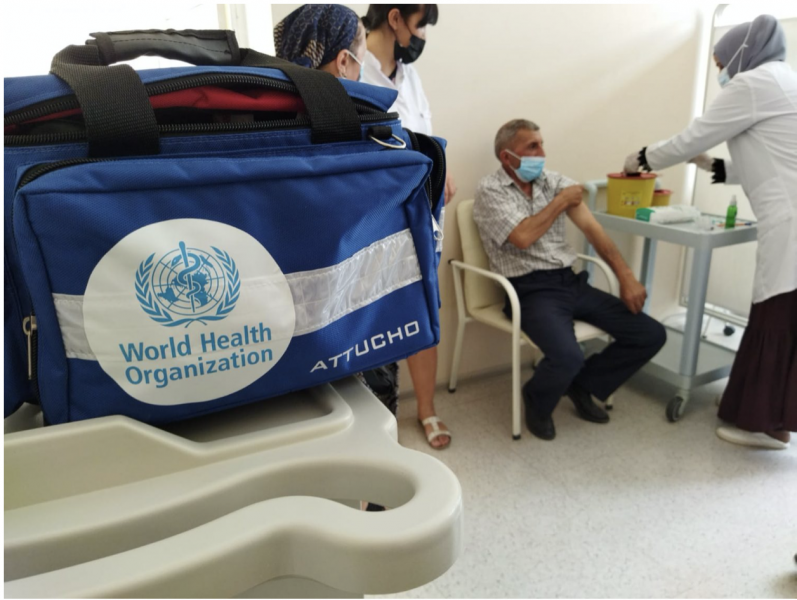
Stories from the field: Special series on the COVID-19 response – Azerbaijan
Health workforce
October 13, 2021
Azerbaijan strengthens its health workforce to boost primary health care
Azerbaijan is strategically building a stronger health system from the ground up. This is helping ensure that rural communities are not left behind in COVID-19 response and vaccination efforts, and that everyone can get the health care they need. A pilot project in Shamakhi, a mountainous rural region, is providing strong evidence that a primary health care approach - which is focused on training health workers and empowering communities to take charge of their health - is an effective way to build a solid foundation for a more responsive and resilient health system throughout the country.
The Shamaki district, a mountainous area in the east of Azerbaijan, is home to about 106,000 people, most of whom live in rural settings. Accessing health care is difficult for many, owing to inadequate primary health care facilities. However, things are changing for these communities with the PROACT Care project implemented by WHO through the Universal Health Coverage Partnership (UHC Partnership).
Seferov Semed is the local government representative of Goyler, a small town in Shamakhi region, about 100 kilometers west of Baku, the capital. He recently attended a WHO opening ceremony for 3 mobile primary health care clinics which are now visiting these remote areas and providing essential health services. The mobile clinics are vehicles that move from village to village carrying medical equipment, supplies and community health workers. They ensure that health care is brought closer to those who cannot travel to health facilities that are far away.
“What can primary health care do for Shamakhi? People will get their health checked, health services will be easily accessible and people will be enlightened about health issues,” said Seferov Semed.
Effective primary health care serves as a community’s first point of contact to the health system and means that everyone can access the health care they need at all stages of their life. The approach empowers people to choose healthier lifestyles, prevent diseases and access a range of health services. For example, people can attend a rural or mobile health clinic to receive advice on protection from disease or health emergencies, maintain and improve health through healthier lifestyles, and access early detection, adequate treatment, recovery and palliative care. Health workers will also refer patients to appropriate health facilities or hospitals when needed.